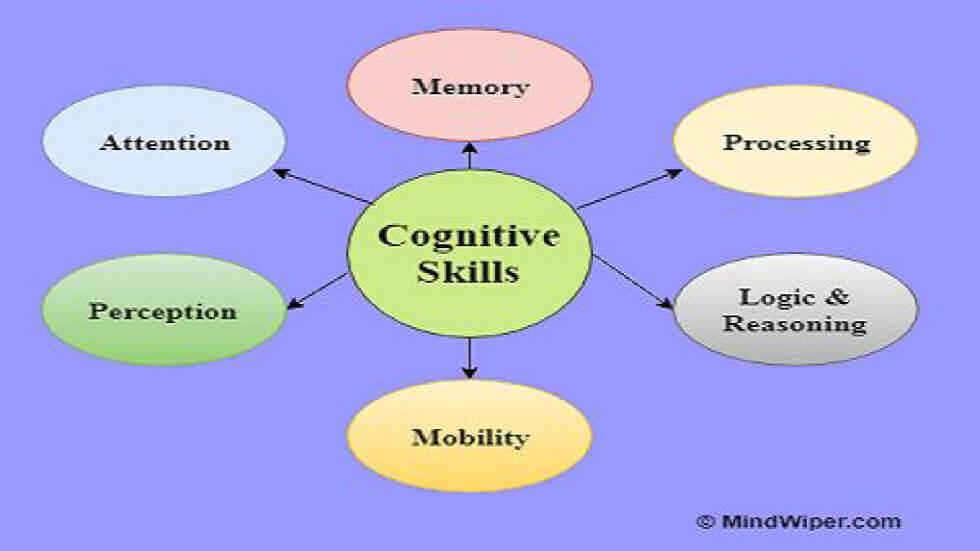Primitive Facts about Cognitive Skills
Information processing model has been evolving over a period of time and Piaget’s theory being the foundation upon which many other research are built upon. Recent research studies reveal a growing trend towards the study of various aspects of a child’s core cognitive skills and the multifarious aspects into which it is getting evolved. Cognitive skills at a broader level includes the following and not limited to:
- Responsiveness
- Short term memory
- Long term memory
- Logical Thinking
- Auditory processing
- Visual processing,
- Processing speed.
In general, the brain uses the above skills to think, learn, read, remember, pay attention, and solve problems. There is strong evidence from research that responsiveness, short-term memory, and long-term memory gets reflected between the age group of 2 to 5. Auditory processing, which involves good reading skills gets developed between the age group of 5 and 7. The very critical skill being the “Logical Thinking” comes into consideration after the age of 5 in a child’s skill development cycle.
Dealing with Cognitive Strengths and Weakness
Every parent is bound to understand the underlying fact that each child has distinct cognitive strengths and weaknesses within the same age group. For example, one child may have tremendous short term memory skills which includes a time span of hours to a few days. These children could be given an option of reading just before the exams in a more systematic way which would yield better results than indulging them to complete the exam portions much before the commencement date. Another set of children within the same spectrum of age group may have good long term memory skills, say for example, an event that got over a year back would be afresh in their memory like a memorable day in the play school etc. These type of children could be trained to prepare well ahead for examinations for better results. Again few children may have extremely good short and long term memory but may be poor in logical thinking and responsiveness accounting for cognitive weakness. Interestingly research says the cognitive ability differs among siblings and even among twins.
The great thing about cognitive skills is that it could be strengthened and worked upon through various exercises and through proven practices. Cognitive skills are not written on hard rocks and hence always moldable in a child development phase. Similarly, as time evolves, a parent would definitely be able to identify their child’s cognitive strengths and weaknesses. There are a lot of cognitive assessment tools available which could be used to ascertain the levels. Based on the child’s strengths and weaknesses, further course of actions could be planned appropriately. Parents need not panic if they identify certain cognitive weaknesses in their child. What they need to do is to try to reverse at the early stage itself by helping them to take up some brain trainings.
Brain training exercises – Examples
To start with it is very important to improve and focus on visual memory (remembering what you see) or auditory memory (remembering what you hear and read). Next focus area would be short-term or long-term memory. Short-term memory as the name implies would be applicable in terms of seconds to hours. However, in reality it is arduous to focus about long-term memory without getting the aspects of short-term memory right. Word building exercise would help to build both short and long term memories. As an example, the following training process could be considered: Initially, let the small kids between four to six years of age get trained in the following manner, make them to remember a list of three short words, increase it gradually by appending one or two more words to the list at regular intervals. As they grow, rigorous training should be given to make them repeat and recite those words to enhance their short term memory skills. The difficulty levels in the exercise should be aligned with the age of the child. In general, it is noticed that when children cross primary schooling they would have attained good quantum of training and even be able to remember a good count of difficult words. Hence, with the help of these simple training methods, it is feasible to set the short and long term memories appropriately. Improving memory can be made more stimulating by trying to remember words that are not easy to envisage. The games mentioned below could also be tried out for the development of various cognitive skills.
- Shunting puzzles – to improve executive functions, spatial orientation and imagination
- Memory Matrix – to improve Short-term visual memory, Attention span, Reaction speed
- Sneaky Colors – to improve Attention selectivity, Attention span, Executive functions, Speed
- Word building – to improve short term memory
Brain training games are always fun-filling and rewarding. Brain training games should be practiced appropriately based on the recommendations of neuroscientists and on specific requirements. Thousands of children worldwide take up these trainings to improve upon their cognitive skills. Hence, in the present situation it becomes imperative for parents to first understand the cognitive strengths and weaknesses of their child and then train and shape them accordingly for better outcomes.
